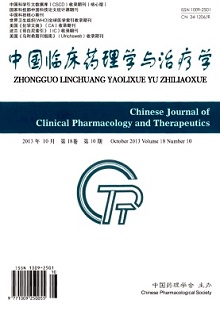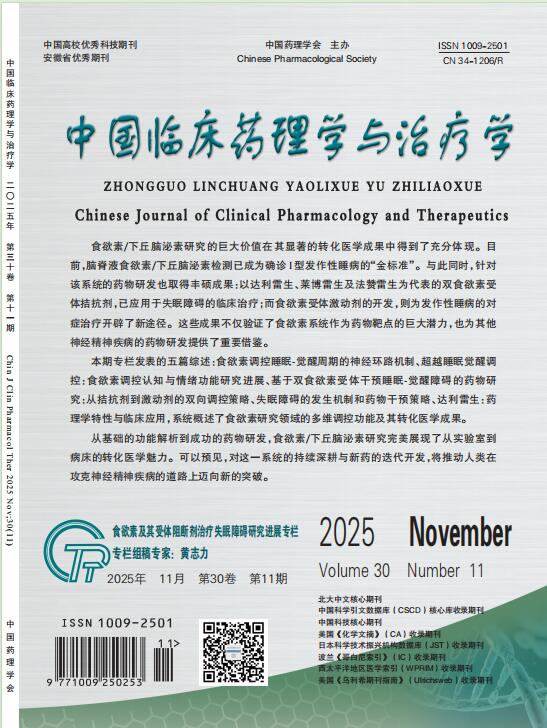Effects of dexmedetomidine to intracranial aneurysms with stress response and awakening quality on tracheal extubation
ZHANG Ling-bin, FAN Li-hua, LU Xiang-hong, HE Ren-hong, CHEN Qin, YOU Min-ji, XU Qiao-min, DING You-fa
2013, 18(10):
1144-1147.
 Asbtract
(
247 )
Asbtract
(
247 )
 PDF (675KB)
(
366
)
References |
Related Articles |
Metrics
PDF (675KB)
(
366
)
References |
Related Articles |
Metrics
AIM: To observe the effect of dexmedetomidine on intracranial aneurysms with stress response and awakening quality on tracheal extubation.METHODS: Select Hunt / Hess grading as I-II-class implementation of intracranial aneurysm surgery patients 50 cases, and randomly divided into dexmedetomidine group (group A) and normal saline group (group B), 25 patients in each. Group A were given dexmedetomidine with 0.5 μg/kg continuous infusion for 10 min before anesthesia, intraoperative 0.4 μg·kg-1·h-1 continuous infusion. Group B were given the same dose of 0.9% sodium chloride injection. Both groups were treated with combined intravenous-inhalation anesthesia. We recorded the changes of blood pressure (BP) and heart rate (HR) at into the operating room (T1),extubation (T2), extubation after 5 min (T3), 10 min (T4),measured the concentration of cortisol (COR), blood glucose (GLU), blood lactate (LAC), and recorded anesthesia recovery time,restlessness rating,visual analogue pain scores (VAS) and Ramsay sedation scores after extubation 30 min.RESULTS: The MBP, HR, COR, GLU, LAC of Group B increased more significantly (P<0.01 or P<0.05) than group A. Group B restlessness score and at VAS score 30 minutes after extubation were higher than those of group A, but Ramsay sedation scores were lower in group A (P<0.05).CONCLUSION: Dexmedetomidine can effectively inhibit the stress response to tracheal extubation period, can improve the quality of recovery from anesthesia, do not delay recovery.


